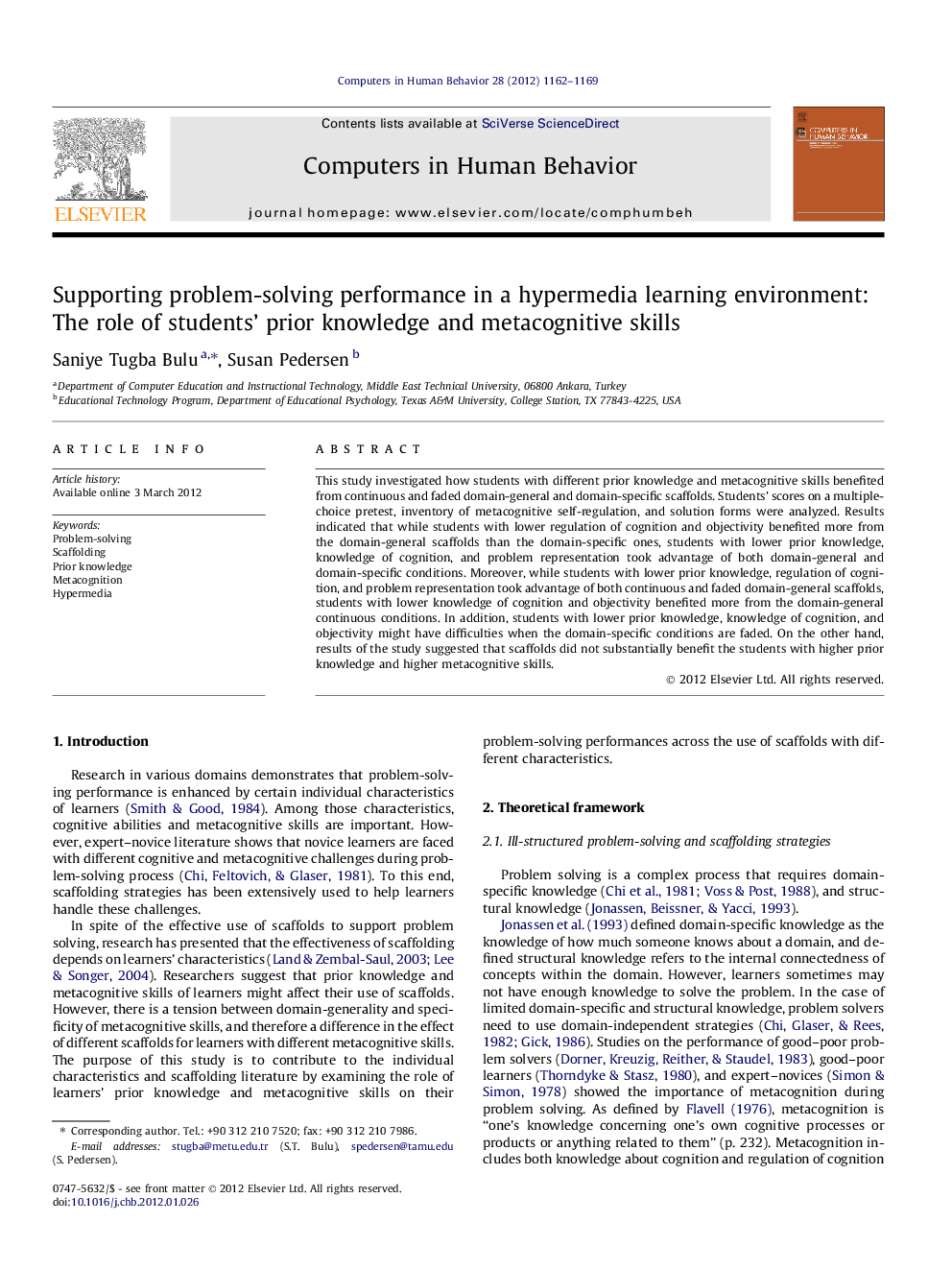| Article ID | Journal | Published Year | Pages | File Type |
|---|---|---|---|---|
| 351376 | Computers in Human Behavior | 2012 | 8 Pages |
This study investigated how students with different prior knowledge and metacognitive skills benefited from continuous and faded domain-general and domain-specific scaffolds. Students’ scores on a multiple-choice pretest, inventory of metacognitive self-regulation, and solution forms were analyzed. Results indicated that while students with lower regulation of cognition and objectivity benefited more from the domain-general scaffolds than the domain-specific ones, students with lower prior knowledge, knowledge of cognition, and problem representation took advantage of both domain-general and domain-specific conditions. Moreover, while students with lower prior knowledge, regulation of cognition, and problem representation took advantage of both continuous and faded domain-general scaffolds, students with lower knowledge of cognition and objectivity benefited more from the domain-general continuous conditions. In addition, students with lower prior knowledge, knowledge of cognition, and objectivity might have difficulties when the domain-specific conditions are faded. On the other hand, results of the study suggested that scaffolds did not substantially benefit the students with higher prior knowledge and higher metacognitive skills.
► We examine how students with different individual characteristics benefited from scaffolds in hypermedia environments. ► Students with lower regulation of cognition and objectivity benefited more from general scaffolds than specific ones. ► Students with lower prior knowledge, knowledge of cognition, problem representation benefited from both type of scaffold. ► General scaffolds are not effective for lower knowledge of cognition, and lower objectivity when they are faded. ► Specific scaffolds are not effective for lower prior knowledge, knowledge of cognition, and objectivity when they are faded.
